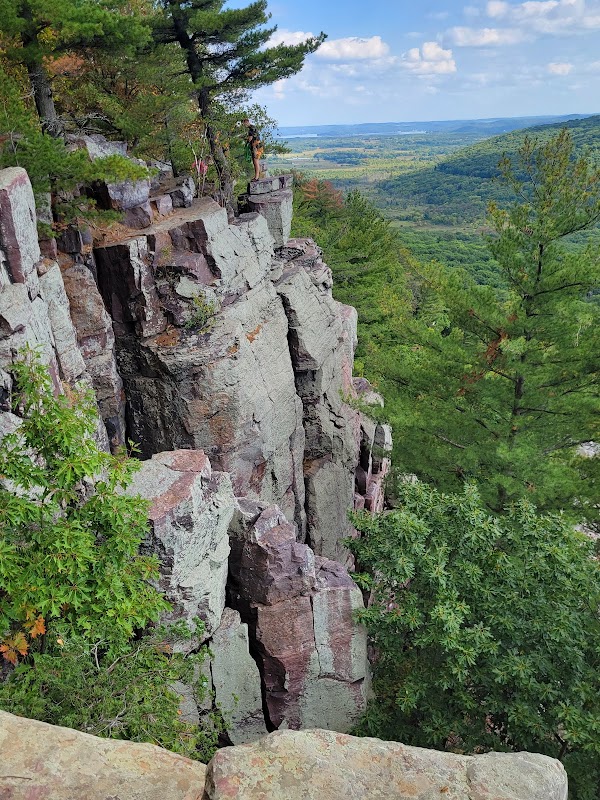
Experiencing the Lodi Agricultural Fair: Wisconsin’s Authentic Rural Adventure
The Lodi Agricultural Fair brings the heart of Wisconsin’s farming heritage to life each summer with hands-on activities, livestock shows, and classic fair fun. Whether you're intrigued by rural traditions or simply looking for an accessible outdoor event, the fair offers a weekend filled with practical learning and genuine adventure.
Wear Sturdy Footwear
Grassy fields and gravel paths are common throughout the fairgrounds. Comfortable and supportive shoes will keep you steady as nature tests each step.
Stay Hydrated
Summer temperatures can climb quickly. Carry a refillable water bottle and seek shaded rest spots to keep energy high throughout your visit.
Plan Your Arrival Time
Arriving early on festival days allows you to beat crowds and catch the morning livestock competitions and demonstrations at their liveliest.
Bring Cash for Vendors
While many vendors accept cards, small craft and food stands often operate cash-only. Having some bills on hand ensures smooth transactions.
Experiencing the Lodi Agricultural Fair: Wisconsin’s Authentic Rural Adventure
Every summer, the town of Lodi, Wisconsin, throws open its arms and fields to the Lodi Agricultural Fair, a weekend-long celebration that revives the pulse of rural life with hands-on experiences and down-to-earth entertainment. This fair isn’t just an event—it’s a stepping into a world where soil smells rich, livestock hum with life, and community spirit charges the air like electricity.
Held annually in late June, the fair occupies a compact, accessible space in Lodi’s town grounds, offering visitors the chance to explore agricultural history, admire competitive farming displays, and enjoy classic fair rides and games. The grounds buzz with activity, from the steady clucks of prize-winning chickens to the jostle of craft vendors and the laughter spilling from food stalls.
For adventure-seekers, the fair blends outdoor energy with practical education. Visitors can watch behind-the-scenes demonstrations on animal husbandry and crop cultivation, or try their hand at skill challenges such as tractor driving or milking contests. Each pavilion invites participation and inquiry, putting the visitor at the heart of agricultural tradition without requiring a farming background.
The setting itself encourages exploration: well-maintained paths wind through shaded groves and open fields where the Wisconsin River teases from a distance. The landscape here isn’t just a backdrop; it’s an active character pushing visitors forward to discover what rural life and land stewardship mean on a local scale.
Planning your visit is straightforward. The fair runs over three days, generally from Friday afternoon to Sunday evening, giving ample opportunity to explore without rush. Parking is abundant, and the compact footprint makes it walkable for all ages. For the pragmatic visitor, bring sturdy footwear as some uneven grassy areas and light gravel paths can challenge casual footwear.
Hydration and sun protection are essential, as summer days can grow hot and fair shelters offer only intermittent shade. Several food vendors provide Wisconsin comfort food, from bratwurst to fresh dairy delights, but packing a refillable water bottle remains a wise move.
Whether you're scouting for a family-friendly day trip or a cultural glimpse into agricultural Wisconsin, the Lodi Agricultural Fair stands as an engaging, approachable outdoor experience. It offers the thrill of rural discovery and a chance to appreciate a way of life that continues to shape the Midwest, fiercely connected to its earth and community.
Nearby Trips
All Adventures
Boat Charters
Water Activities
Adventures near Lodi, Wisconsin
Discover the unique and memorable adventures that make Lodi, Wisconsin special.
Frequently Asked Questions
Is the Lodi Agricultural Fair suitable for children?
Absolutely. The fair offers many family-friendly activities, including petting zoos, craft booths, and gentle rides, making it an excellent destination for kids to learn and play.
Are pets allowed at the fair?
Pets are generally not allowed on the fairgrounds out of respect for the livestock and to ensure visitor safety. Service animals are an exception but should be leashed and well-behaved.
Where can I park when visiting the fair?
There is ample free parking on-site with clear signage. Arrive early during busy days for best parking spots and avoid long walks.
Can I bring my own food and drinks?
Outside food is generally discouraged, as there are numerous vendors offering traditional Wisconsin fare. However, water bottles are welcome and encouraged to remain hydrated.
Are there any special events or competitions at the fair?
Yes, the fair features livestock shows, crop judging contests, tractor pulls, and dairy demonstrations, all scheduled throughout the weekend and open for public viewing.
What accessibility accommodations are available?
The grounds are mostly flat and accessible for wheelchairs and strollers, with designated areas and parking to accommodate visitors with mobility needs.
Recommended Gear
Comfortable Walking Shoes
The fairgrounds combine grass and gravel paths that require solid footing and comfort for several hours on foot.
Refillable Water Bottle
Stay hydrated under the summer sun by bringing your own water supply, as water stations may have lines.
Sun Hat and Sunscreen
Protection from direct sun exposure is key during midday events and outdoor attractions.
Light Rain Jacket
Sudden summer showers can surprise visitors; a compact rain jacket keeps you dry without the bulk.
Local Insights
Hidden Gems
- "Small community garden plots near the fairgrounds offering a glimpse into urban farming efforts"
- "A quiet riverside trail along the Wisconsin River within blocks of the fair, perfect for a reflective stroll"
Wildlife
- "White-tailed deer often graze in surrounding fields in the early morning hours"
- "Numerous bird species, including red-winged blackbirds and great blue herons along nearby water edges"
History
"Lodi’s agricultural roots stretch back over 150 years, with the fair founded as a community gathering to honor farming traditions and innovations that have shaped the region’s identity."
